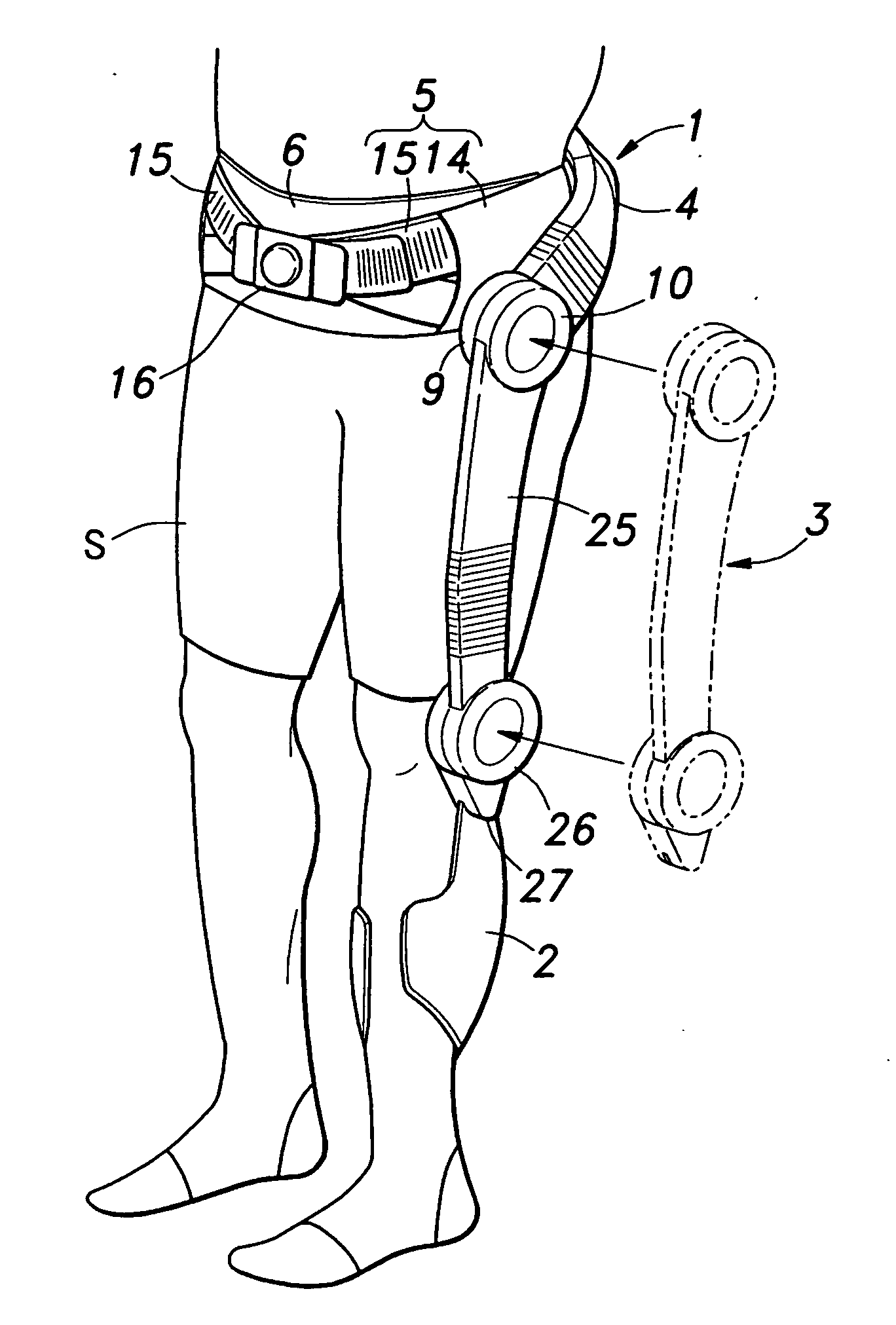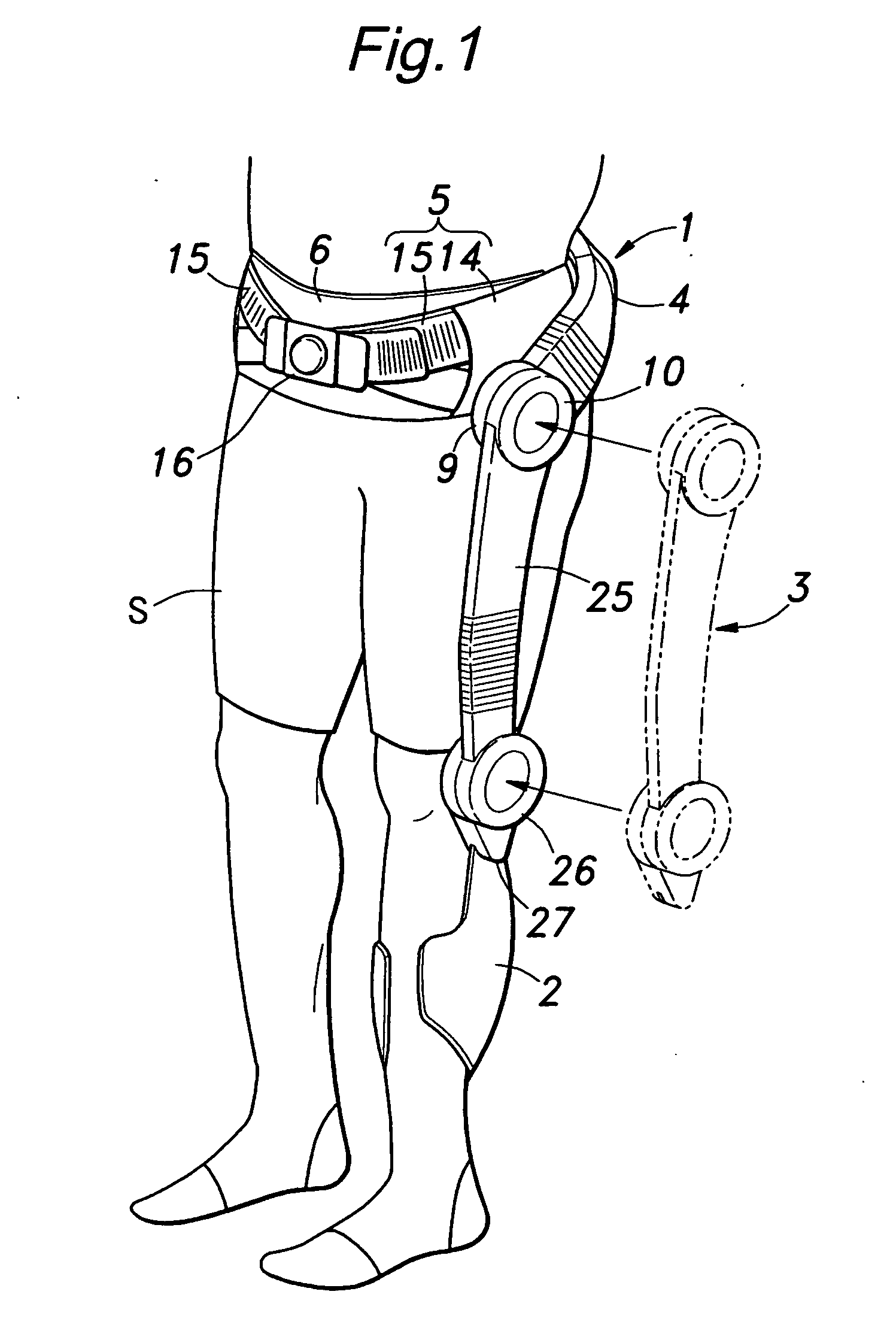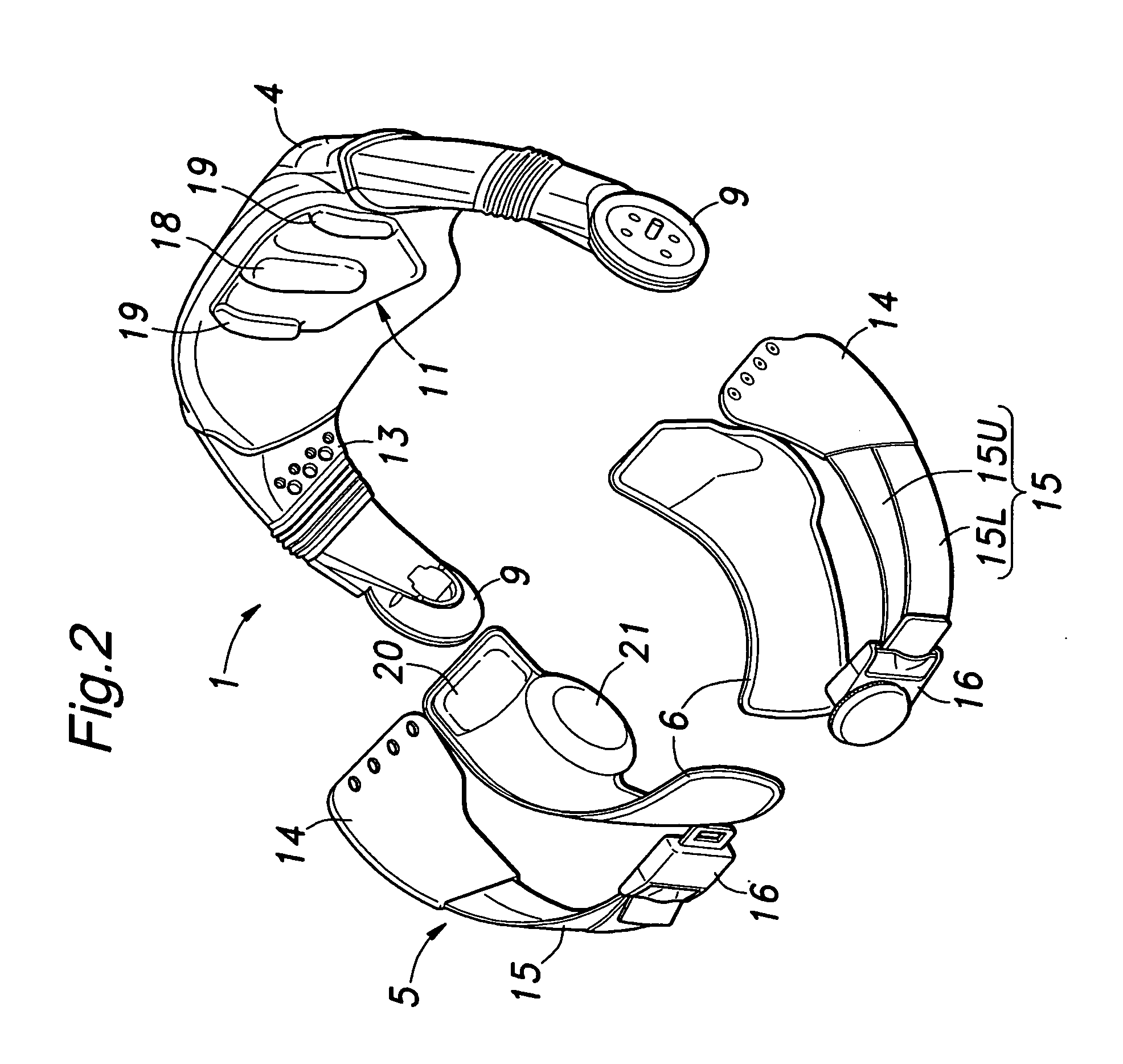Walking assistance device
a technology of assistance device and walking aid, which is applied in the field of walking assistance device, can solve the problems of hammering free movement of the body, and achieve the effect of reducing deviation of movemen
- Summary
- Abstract
- Description
- Claims
- Application Information
AI Technical Summary
Benefits of technology
Problems solved by technology
Method used
Image
Examples
Embodiment Construction
[0017]FIG. 1 shows a walking assistance device of the present invention as worn on a user's body. The walking assistance device consists of a hip support member 1, lower leg support member 2 and a drive unit 3, where the hip support member 1 and the lower leg support member 2 are secured on a lower limb and a rotational torque generated by the drive unit 3 is transmitted to the lower limb via the hip and lower leg support members, to whereby provide a force for supplementing a reduced muscle power.
[0018] The hip support member 1 comprises a back support 4, belt portion 5 and lining portion 6, as shown in FIG. 2.
[0019] Additionally referring to FIG. 3, the back support 4 is substantially of the shape of letter-U as seen in plan view so that it abuts a region of the body extending from right and left iliac crests (front ends of the pelvic bone) 7 to the backside of the sacroiliac joint (joint between the vertebrae and pelvic bone) 8, and consists of a substantially rigid body so as ...
PUM
 Login to View More
Login to View More Abstract
Description
Claims
Application Information
 Login to View More
Login to View More - R&D
- Intellectual Property
- Life Sciences
- Materials
- Tech Scout
- Unparalleled Data Quality
- Higher Quality Content
- 60% Fewer Hallucinations
Browse by: Latest US Patents, China's latest patents, Technical Efficacy Thesaurus, Application Domain, Technology Topic, Popular Technical Reports.
© 2025 PatSnap. All rights reserved.Legal|Privacy policy|Modern Slavery Act Transparency Statement|Sitemap|About US| Contact US: help@patsnap.com



